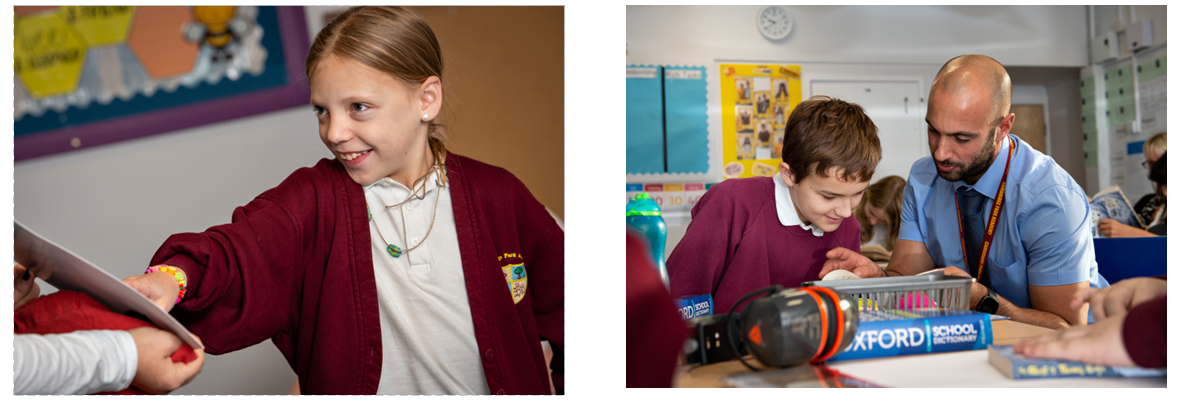

Foundations Curriculum
Our ‘Foundations learners’ are those pupils with moderate to severe learning difficulties who may also have overlapping additional needs such as social emotional needs, communication and interaction needs and/or sensory needs.
Our aim is to provide broad, balanced and relevant learning experiences which equip and engage pupils with core subject knowledge, skills and understanding alongside structured, planned learning experiences which address their individual areas of need.
-Support pupils to develop and apply relevant academic knowledge to a wide range of contexts
-Support pupils to become confident communicators across a range of settings
-Promote personal, social emotional and cultural development
-Develop functional adaptive life skills to promote independence
-Promote active involvement in community experiences and provide cultural capital
Aspects of this curriculum pathway use a range of methods and approaches best suited to the pupils’ learning and development needs including:
- Focussed formal subject specific lessons for core subjects
- A spiral curriculum that builds on and further develops “sticky knowledge”
- A relevant, developmentally appropriate, aspirational thematic approach
- Experiential and concrete learning opportunities
Pupils’ accessing the ‘Foundational’ aspects of the curriculum are initially assessed using a range of in-house and professional assessments to determine specific need. The Foundations curriculum is comprised of two main elements:
- Core subject lessons and formal, differentiated learning
- Individual learning outcomes using personalised learning plans (PLPs)
Pupils’ progress is evaluated using our in-house assessment tool which monitors their formal learning against an adapted version of the National Curriculum. The pupils' progress on their personalised outcomes is evaluated against the outcomes set on their Education, Health and Care Plan.

Our Foundations Curriculum will:
✓ Ensure pupils are able to use “sticky knowledge” across a range of contexts
✓ Achieve developmentally appropriate formal learning accreditation in core subjects
✓ Develop positive social relationships, within school, home and the wider community Embrace a range of social, communication, interaction and practical skills, empowering them to become active learners and members of their community
✓ Give opportunities to apply life skills and everyday functional literacy and numeracy skills
✓ Develop confidence and celebrate achievements
✓ Enable pupils to communicate their likes and dislikes, feelings, hopes and aspirations for the future
✓ Develop interpersonal skills so that pupils have the ability to make friends, make active choices and develop a sense of belonging within the wider community
✓ Teach pupils how to live safe and healthy lifestyles